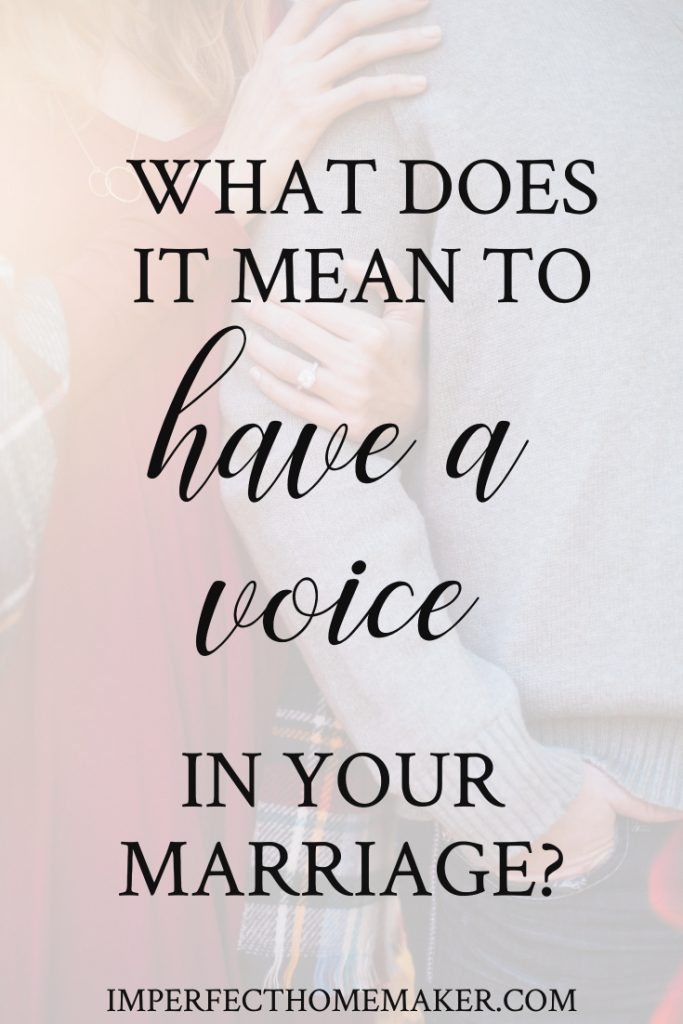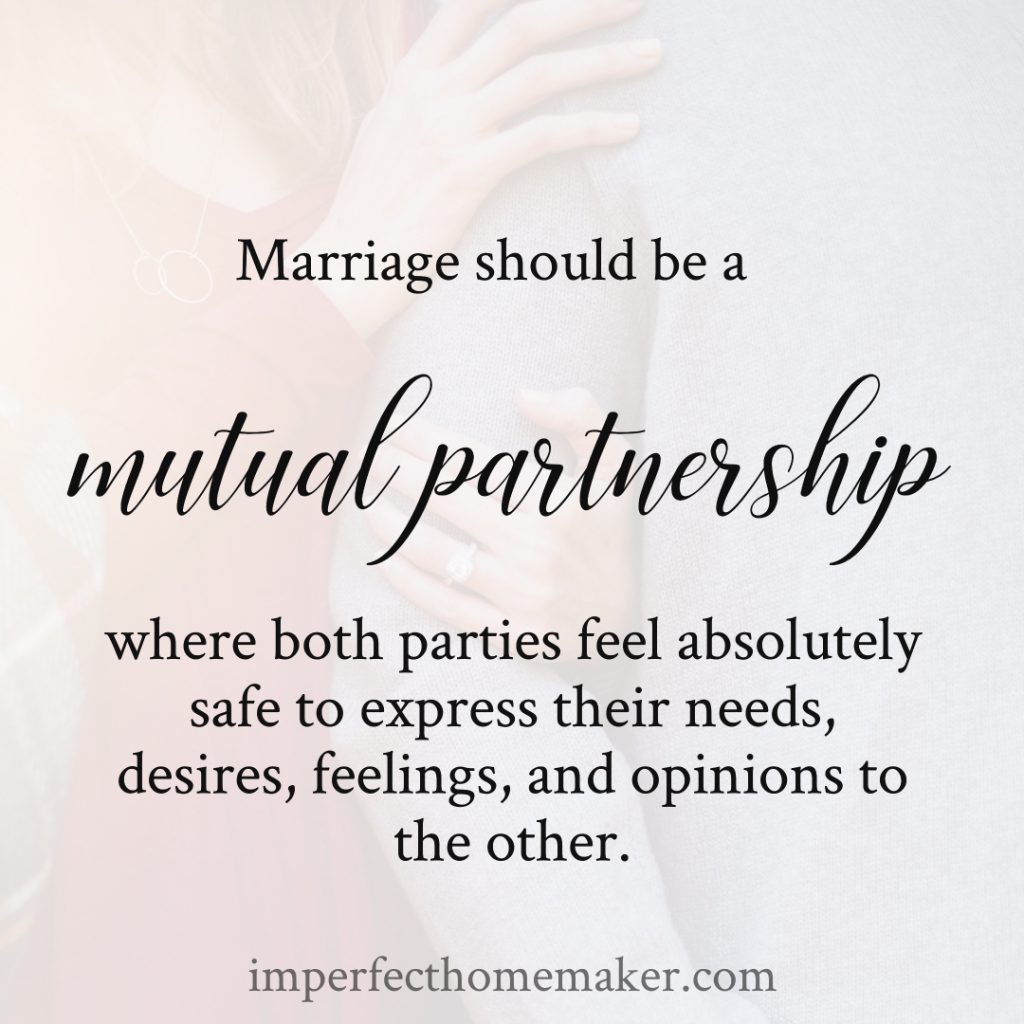What Does it Mean to Have a Voice in Your Marriage?
One of the common phrases I hear women saying who are coming out of an abusive marriage is, “I had no voice in my marriage.”
What might that look like for a woman not to have a voice in her marriage?
-If she tries to voice her feelings about something or give input into a decision, she might be mocked for it.
-Her husband might tell her he doesn’t like her attitude or that her tone of voice is disrespectful.
-Her husband might twist her words to mean things she didn’t say and then blame her for it.
-Her husband might completely ignore her.
Ultimately, the message being sent to her is, “Your feelings and opinions don’t matter.”
Some women continue pushing to be heard. They speak up for themselves louder and louder until those around them assume they are brash and self-centered. (The reality is they are just desperate to be heard.)
Others shut themselves down. If their feelings and opinions only bring ridicule, rage, or denial, then why would they waste their energy even having opinions or feelings? Instead they use their energy to try to predict what their husband wants and align themselves to it before there’s even an opportunity for discussion to take place.
So what does it look like to actually HAVE a voice in your marriage?
Some women believe that having a voice means her husband will listen to her input without mocking her, but ultimately it’s his place to make all the decisions.
Some women believe that having a voice means that she should be granted whatever she’d like.
But even in non-abusive situations where both spouses are discussing things respectfully, these both fall on two opposite extremes – either the husband is calling the shots or the wife is.
This is not a partnership. This is a one-sided relationship where the other person is along for the ride.
-Instead, having a voice means that your spouse does not make unilateral decisions that haven’t been mutually agreed to.
-It means that you do not fear repurcussions of any kind for speaking honestly – not being shut down, ignored, mocked, told that you have a bad attitude, or having your husband explode in anger.
-It means that your husband sees you when are hurt, angry, excited, scared, and everything in between and is not threatened by it.
-It means that your input is valued; not just tolerated.
-It means that you – all of you – are free to show up as exactly who you are. There is no need to be quiet about certain things or morph your opinions into a different shape in order to keep the peace.
Marriage should be a mutual partnership where both parties feel absolutely safe to express their needs, desires, feelings, and opinions to the other.
In Romans 12:10, believers are instructed to honor one another. That means you should show deference to your husband, and your husband should also show deference to you.
Jesus taught in Matthew 7:12 that the way we would like to be treated is the way we ought to treat others. Many wives apply that to themselves (which they should!) but sometimes forget that it also applies to their husband.
If you feel that you have no voice in your marriage, please be aware that I am not diagnosing that you're in an abusive relationship based on that factor alone. Instead, read articles about coercive control. Pick up a book such as “Is it Me? Making Sense of Your Confusing Marriage.” If a bigger pattern of abuse begins to emerge, then you can address it. If it doesn't, get curious about why you feel like you have no voice in your marriage. Is it due to things you've been taught/things you've believed like “I have to die to myself,” “I can't trust myself because my heart is deceitful,” “I can't tell my husband he hurt my feelings because I just need to forgive and forget?” Is it due to not being heard by your parents as a child and those same feelings that you don't matter surface when you're with your husband? It may be necessary to seek out a licensed, trauma-informed counselor who can help you sort through those things.
If you are a friend of someone who is using language about her marriage that may indicate she has no voice in marriage, point that out to her. Ask her more questions about what that means or what it is that makes her feel that way. Read books like Unholy Charade, Unmasking the Domestic Abuser in The Church and read articles about coercive control so that you have more tools to help her recognize whether her relationship is abusive. (It's not your job to diagnose; but a good friend should absolutely point out unhealthy dynamics.)
Every human deserves to be heard and seen, especially by those closest to them. Let's help the women we know and love realize that they deserve to have a voice in their marriage.


